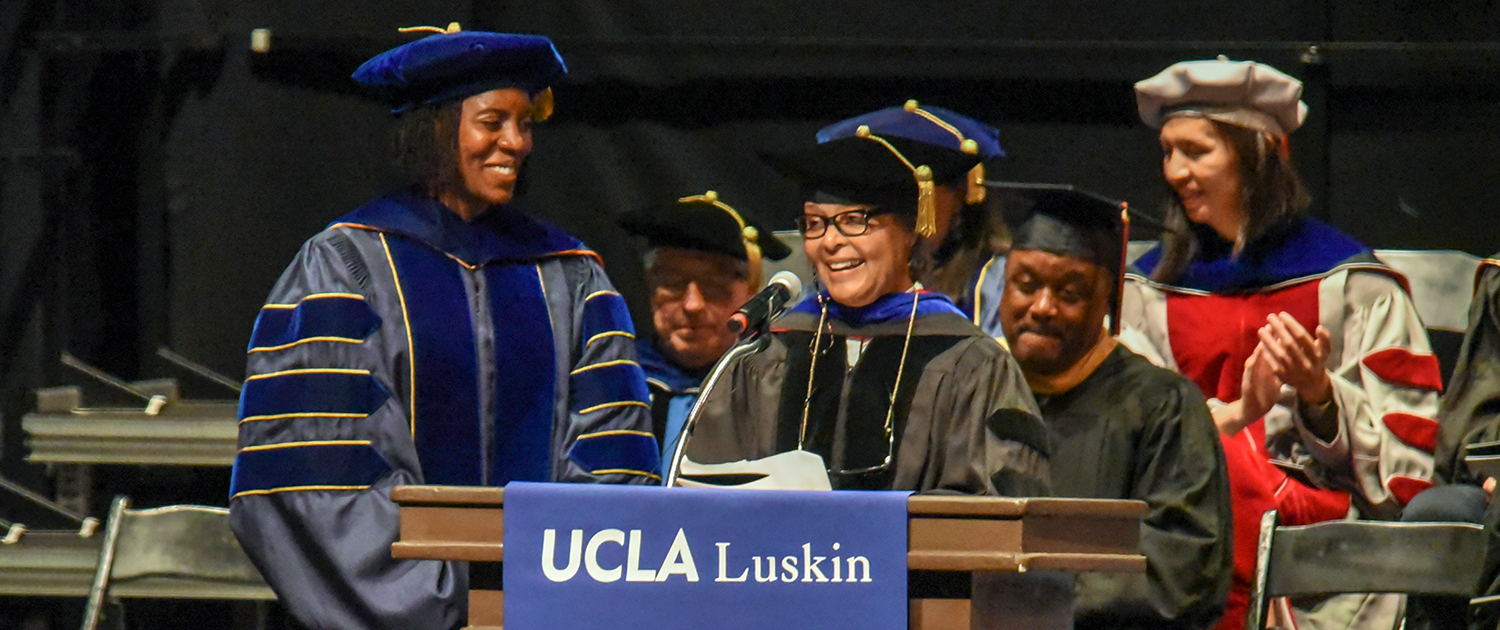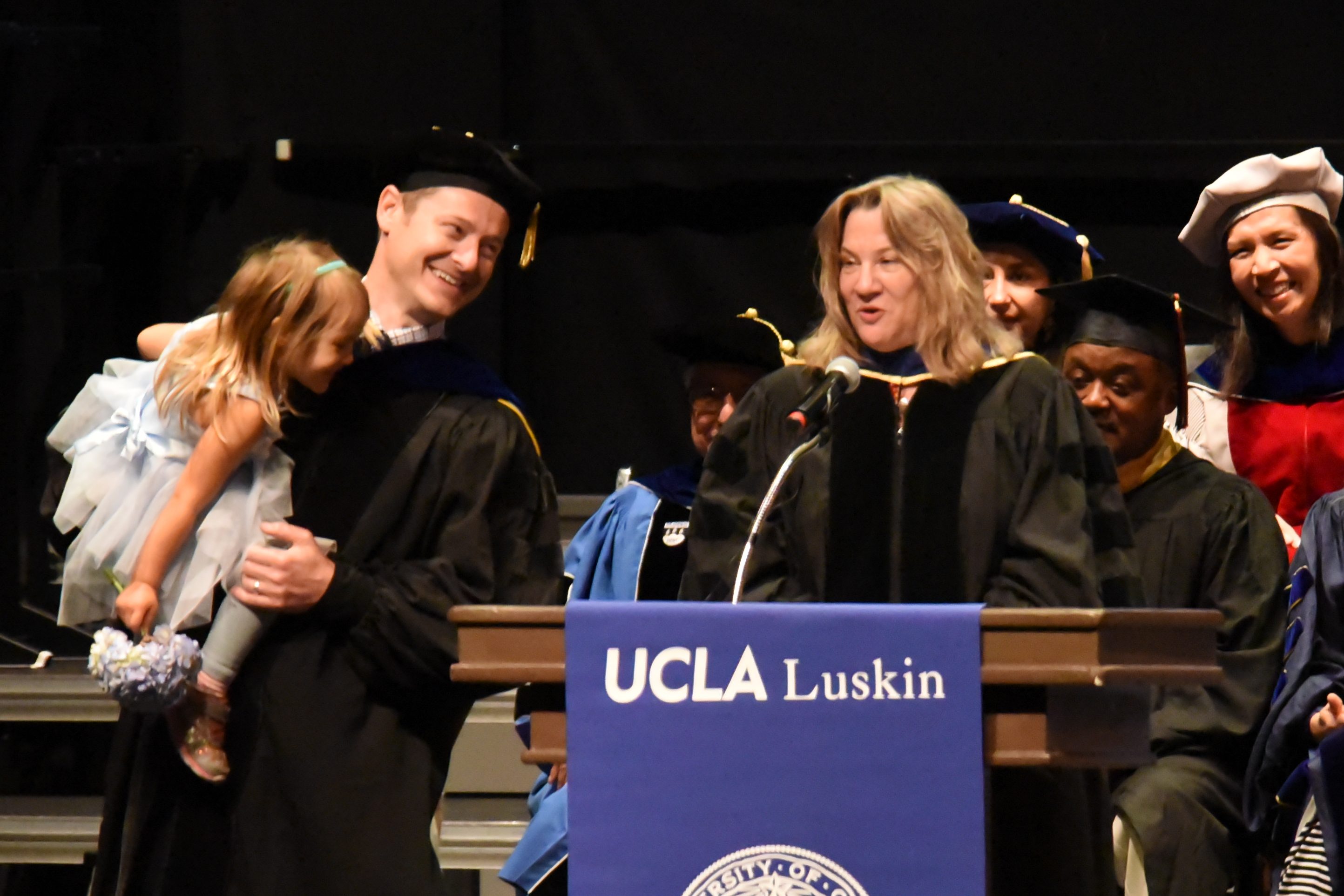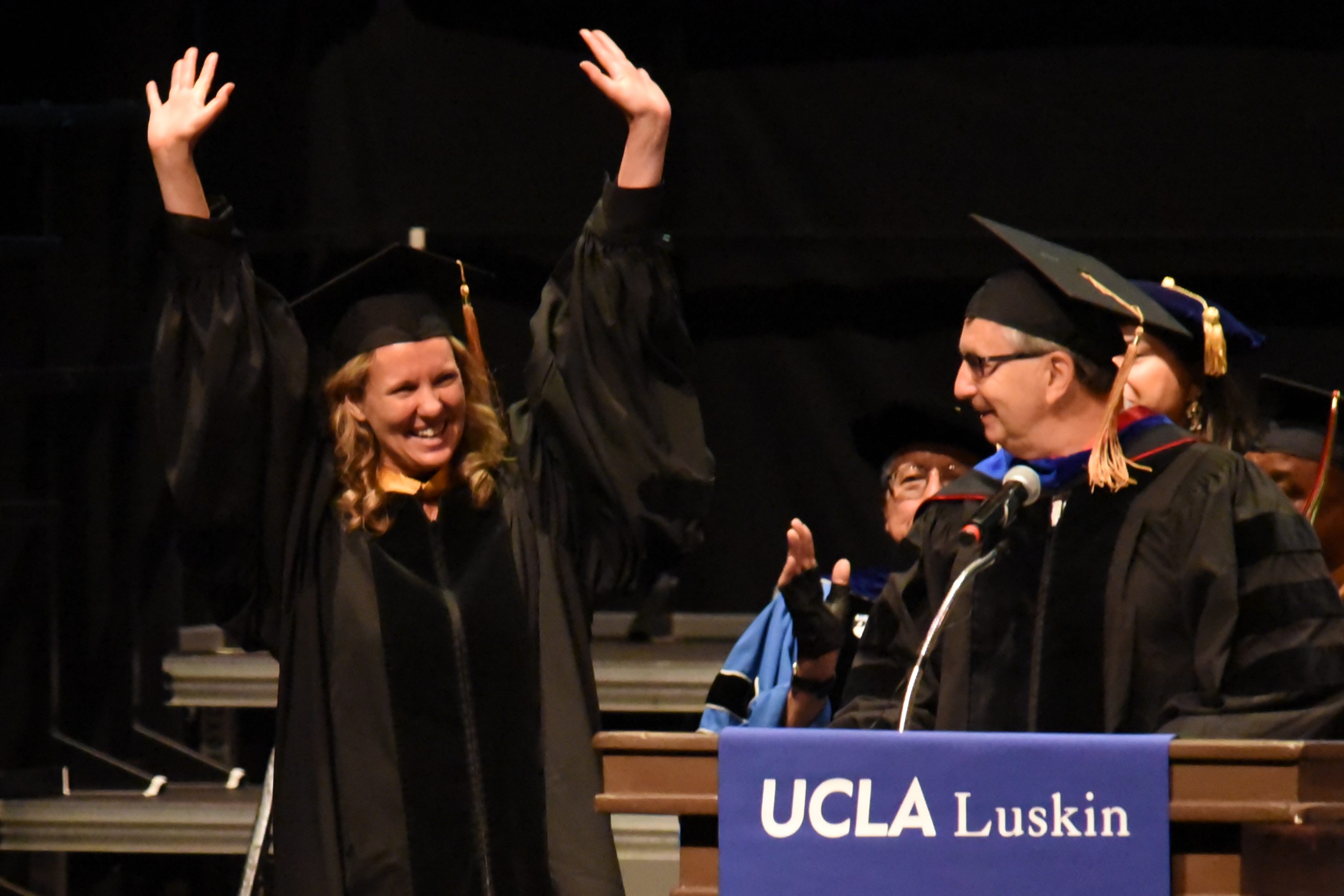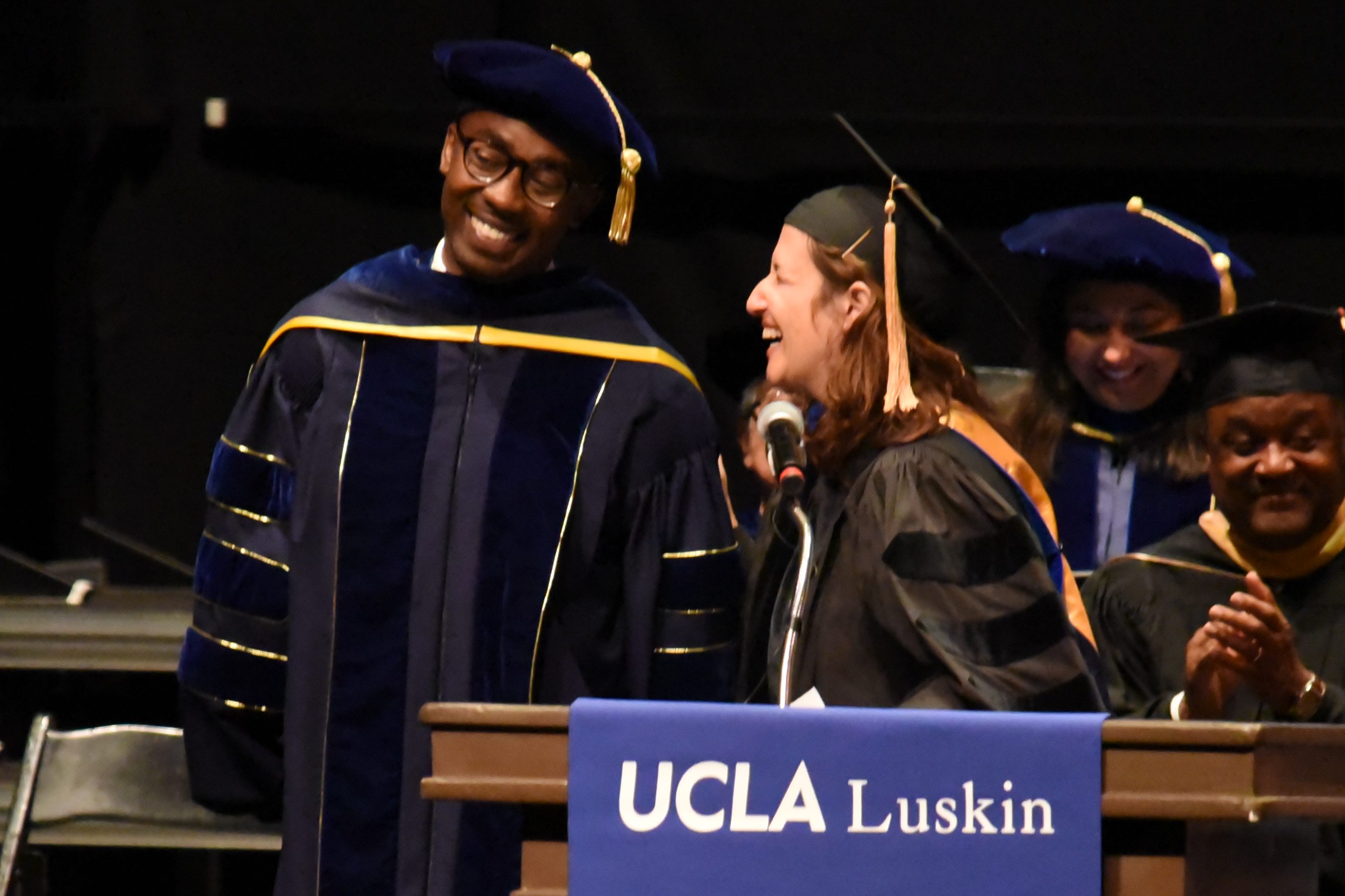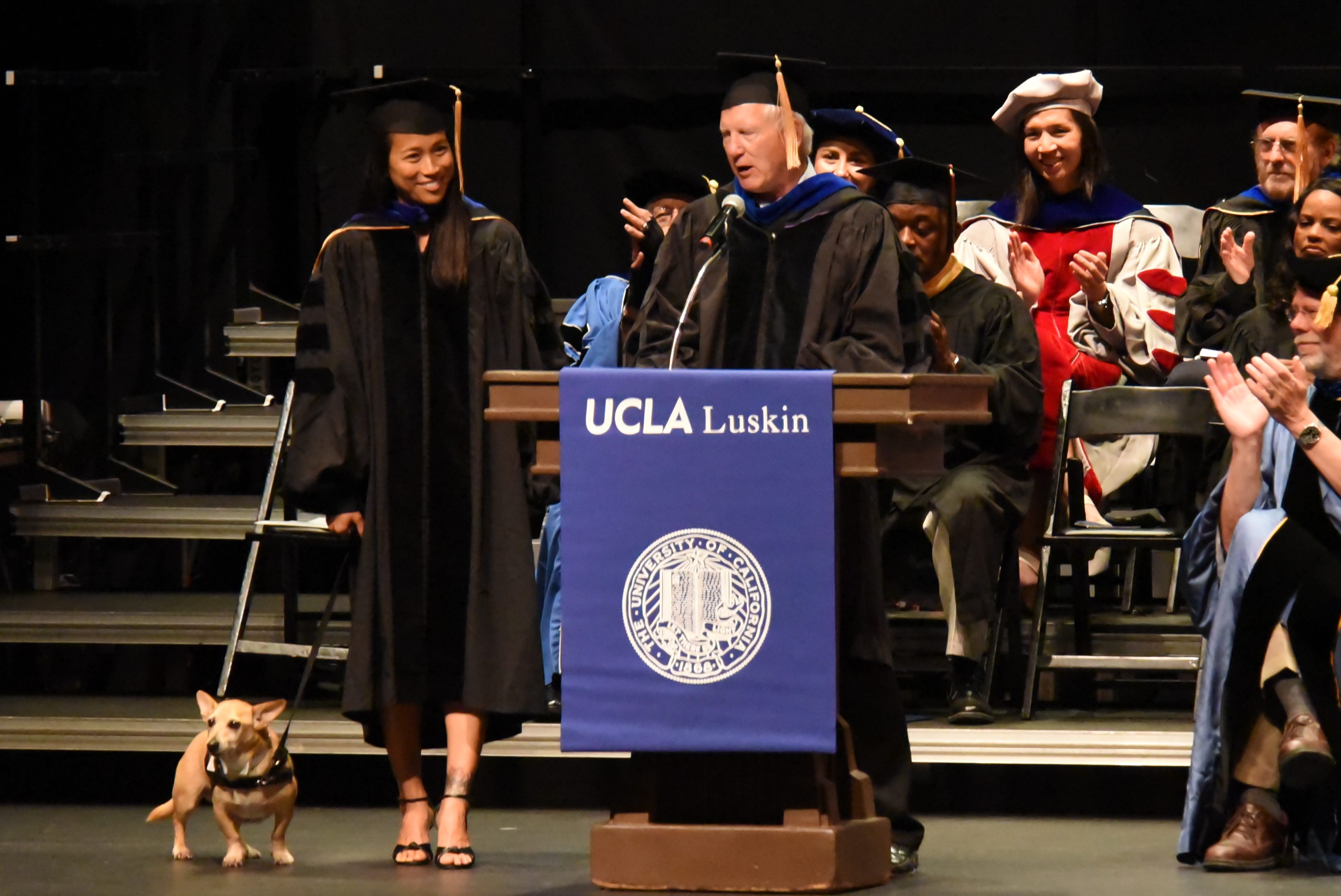About Our Doctoral Program
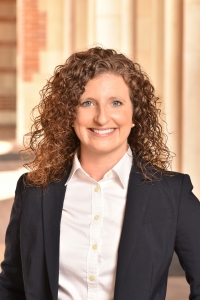
Chair Laura Wray-Lake, PhD
Our doctoral program in social welfare at the UCLA Luskin School of Public Affairs is among the finest in the nation. Each year, we select a small group of scholars from diverse disciplines to join us for a rigorous, tailored study program that includes personalized instruction and applied research experience. Expert mentors guide our doctoral students during their time in the program, and our graduates go on to secure academic positions at top-tier research universities across the world.
Social, racial, and economic injustices are growing nationally and globally, and social work scholars must envision new solutions that change inequitable systems and support thriving for all. Our program aims to provide doctoral students with the tools to conduct rigorous research to address society’s most pressing problems, advocate for individual and community wellbeing, and make positive social change. We seek changemakers with a passion for research to join us in this important work.
Our department has an active plan to address racism and anti-Blackness which can be viewed here. We invite PhD students who are interested in anti-racism work to join us as we continually seek to reflect on and improve our educational and scholarly practices in social work.
Students take advantage of the rich learning resources in the Social Welfare Department and other departments within the Luskin School during their time at UCLA. A distinct advantage of our program is its connection to the larger UCLA campus. Each year, students can take courses in allied disciplines, including medicine, nursing, public health, psychology, and sociology. The purpose of this interdisciplinary approach is to enable our students to develop substantive and methodological knowledge consonant with cutting-edge scholarship in their area of specialization.
Throughout the program, we offer professional development seminars and workshops on a variety of topics. In recognition of the considerable knowledge and skills required of those contemplating academic careers, our students are encouraged to publish in scholarly journals, present at national conferences, and submit extramural proposals to support their independent research. Through these efforts, our students enter the job market with competitive records of scholarly productivity. Students are invited to join our job seekers program in their final year, which provides personalized mentorship to success in the academic job market.
Financial aid packages include full tuition plus stipends in the first four years in the form of fellowship support and paid teaching assistantships. Full-time students will be expected to enroll in twelve units of study each quarter. It is possible to complete the program in four years, although some take a year longer. We also offer a small combined MSW/Ph.D.** program in which prospective students without a master’s degree in social welfare can apply for acceptance into a program of study that leads to both the MSW and the Ph.D. degrees.
The due date for application materials is December 1st. For more information, please contact me by email at wraylake@ucla.edu or by phone at (310) 825-9722. We look forward to receiving your application and welcome your questions of inquiry.
Curriculum
The program has several significant features. Research training, both formal and experiential, is at the core of the program. Flexibility is provided to help students attain in-depth competence in a substantive area of social welfare. Students progress from a common foundation in scholarship and research methods toward a high degree of individualized specialization. This common foundation emphasizes the acquisition of analytic tools needed to understand, appraise and advance knowledge in social welfare. With these analytical tools, the students select a specific area of specialization and develop expertise in that area. Considerable emphasis is placed on the individualized instructional relationship between students and faculty mentors. The learning process involves more than classroom instruction. Students are expected to work closely with faculty in their roles as scholars and researchers. The program is interdisciplinary and students are encouraged to use the rich learning resources of the entire University.
Full-time students usually will be expected to enroll in twelve units of study each quarter. There are approximately two years of coursework prior to the dissertation. Although diversity of backgrounds makes it difficult to predict, students are expected to complete the program in about four years.
| Courses | Expected Progress by End of Each Year |
|---|---|
| Year 1 • The Craft of Social Work Scholarship (SW229ABC) • Scientific Inquiry (SW249ABC) • Statistics Courses (3 quarters) • Research Apprenticeship (SW284ABC) | •File individualized Development Plan •Pass Oral Comprehensive Examination |
| Year 2 • 3 Social and Behavioral Science Courses • 3 Quarters of Research Internship (286C) • 3 Advanced Research Methods Courses • Additional Courses | • File Study Plan and Research Internship Plan • Complete Mentored Research Internship |
| Year 3 • Critical Issues (258) • Independent Study (596) 2 quarters • Additional Courses | • Approved Written Comprehensive Examination • Dissertation Committee Appointed • Dissertation Proposal Developed • Pass Oral Defense of Dissertation Proposal |
| Year 4 • Dissertation Research (599) | • Dissertation Completed |
Financial Aid
The Doctoral Program of the Department of Social Welfare provides various sources of financial aid, including fellowships, tuition waivers, research and teaching assistantships, and training grants. The basic financial aid package for all new students accepted into the program consists of tuition coverage and at least two years of stipend support. Additional funding is possible after year two through research and teaching assistantships, private fellowships, competitive campus grants, among other sources. Our students are typically funded for at least the first four years of study.
Eugene V. Cota-Robles Fellowship provides 4 years of support for entering doctoral students from cultural, racial, linguistic, geographic and socioeconomic backgrounds that are currently underrepresented in graduate education and who are interested in a career in college or university research and teaching. Applicants must submit a Diversity Statement by December 15. Instructions are available at Eugene V. Cota-Robles Fellowship | UCLA Graduate Programs.
UCLA Graduate Student Financial Support Travel Grants
- Graduate Research Mentorship Programs
- Graduate Summer Mentorship Programs
- Dissertation-Year Fellowships
Other tuition and stipend award packages are available from the following sources:
- Luskin Graduate Fellowship Fund
- Olive M. Stone Scholarship Endowment
- Leon and Toby Gold Endowed Fellowship in Care of the Elderly
- James and Judy Bergman Endowed Fellowship
Doctoral students who are interested in acquiring experience in teaching as preparation for an academic teaching role are provided with the opportunity to assist faculty members in the instruction of selected undergraduate and graduate courses. Interested students are encouraged to apply for teaching assistantships after completion of the second year in the program.
The UCLA Financial Aid Office administers grants-in-aid and loans to students. The Fellowship and Assistantship Office of Graduate Division administers University fellowships and is a source of information and application materials for fellowships offered by private foundations and agencies.

Contact
UCLA Luskin School of Public Affairs
3250 Public Affairs Building - Box 951656
Los Angeles, CA 90095-1656
Campus Resources
Follow
The statements on this page represent the views of people affiliated with the Luskin School of Public Affairs and do not necessarily represent the views of the University of California, or UCLA or its Chancellor.
Posts and comments by individuals at UCLA on social media channels may not reflect the opinions or policies of UCLA, the University of California or the Luskin School, nor its benefactors and academic partners.
